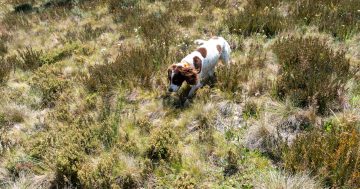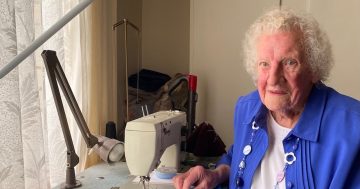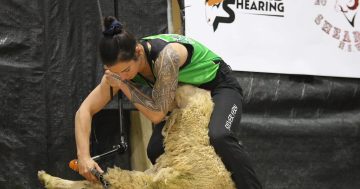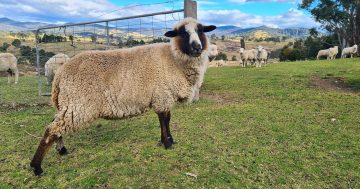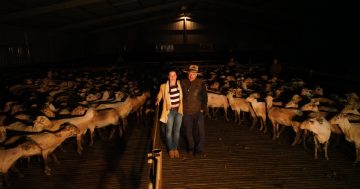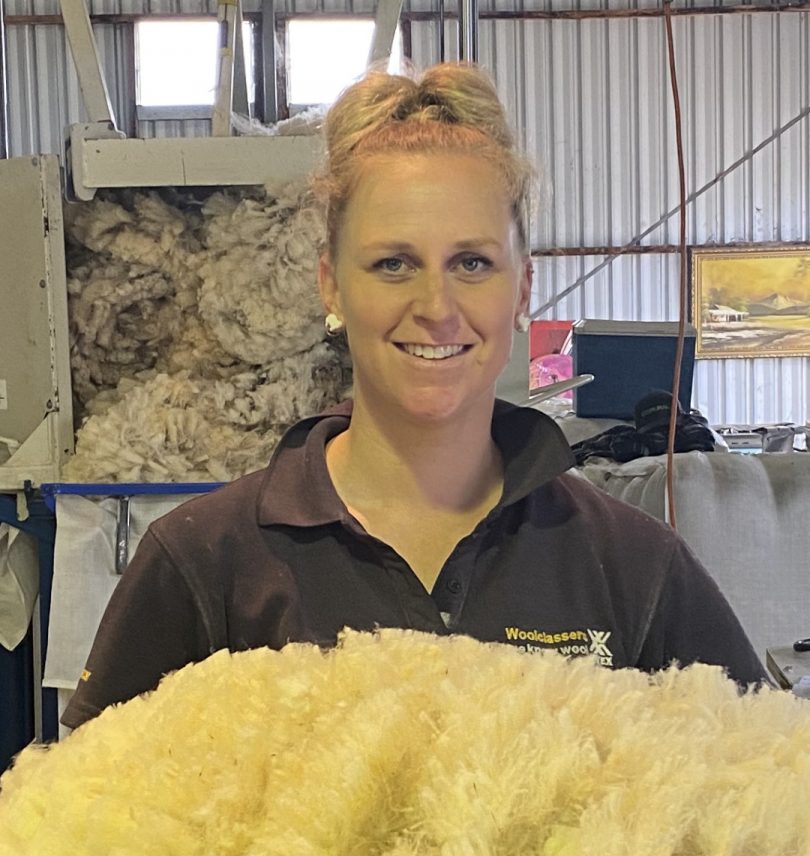
Wool classer Emma Lenon is happiest when surrounded by her favourite natural fibre. Photo: Supplied.
There’s not a lot Emma Lenon doesn’t know about wool. She’s had a passion for sheep and wool since first going into the family’s shearing shed at Colinton, near Bredbo, as a child – the 6th generation to do so.
She was 16 and on school holidays when she started working in the sheds away from the family farm.
“I just knew this was for me,” she said. “So that was it. I left school at the end of Year 10.”
She learned her trade on the job but also did a TAFE course one night a week for two years.
She said working in the sheds is not for everyone, saying it was a lifestyle – the long hours, the back-breaking work and the travelling.
But it’s working as a team that makes it what it is.
Based at Captains Flat near Queanbeyan, she mainly works in the Southern Tablelands Monaro region of the state, but like most in the industry, will travel to where the work is.
“You work 10-hour days,” she said.
“You really work hard. In summer, I generally go down a full dress size just with sweating so much. In winter I put it back on again, but I wouldn’t have it any other way.”
She works both as a wool classer and a wool handler. The latter term was once “roustabout” but it’s no longer used in the industry because the dictionary describes it as an “unskilled worker”.
When she works on the board as a wool classer, Emma’s the boss. She gets in before everyone else and makes sure everything is where it should be.
“You have the responsibility of classing the wool, but you also have to manage the whole thing – the problems are on you. You run the team, decide who goes where who does what. You are there to prepare the wool clip to produce the best possible return for the wool grower.
As a wool handler, she can run up 30km a day. She has to keep up with the shearers’ pace regardless. Although a gun shearer can go through 300-plus animals a day, the average is about 150.
“I work with shearers, usually four or five but often more, so you just have to keep up. We’re in each other’s bubble so you run a lot and sweat a lot.”
Although the hard work is the same as when she started, Emma said there’s a different attitude in today’s sheds.
“There are mostly equal numbers of women in today’s sheds, so it’s no longer a matter of having to prove ourselves.
“These days people are more open, they’re fine with passing down stuff. In the past, you had to prove yourself before anyone would tell you things. I was one of only a few girls in the shed back then so I copped a bit of flak. I just had to prove myself.”
“Women are just so common in the sheds now, but it can still be very competitive. But it’s also about sharing. We help each other now, it’s a completely different culture.”
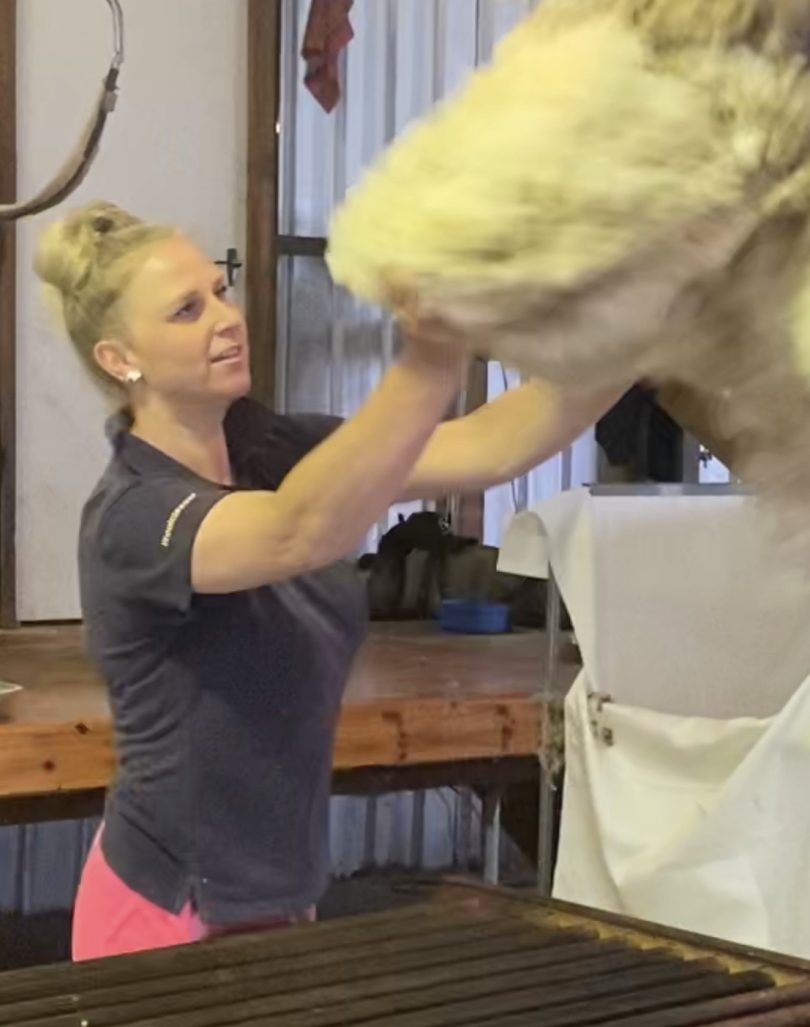
Emma Lenon at work in the shearing shed. Photo: Supplied.
In days gone by, drinking competitions would be the order of the day after work, but according to Emma, shearers take better care of themselves these days.
“People are more aware of what they put into their bodies now and that if they do the right thing, they’ll get longevity in their careers.
“Today the demands are greater on the wool staff as well as the shearers,” she said.
“When I started, there was not as much preparation work in wool handling. But now, to meet the market demands, the more you prepare the wool the more you will attract buyers. It’s a matter of providing buyers with exactly what they want – a better product.”
So what job does she prefer? Classer or handler?
“As long as I have my hands in wool I’m happy,” she said.
A big part of her job is training. It’s not an organised thing, it’s just passing on information and advice to anyone who asks.
“I really like sharing knowledge, mentoring people. If you’re good, you can walk into any shed and earn good money. You get a lot of people coming into the sheds to work, but what I’d like to see is more of them staying.”
Emma will talk about her career in a special virtual talk on Friday 11 November as part of the National Farmers Federation’s National Agricultural Day events.
More information is available at https://www.agday.org.au/careers-expo








